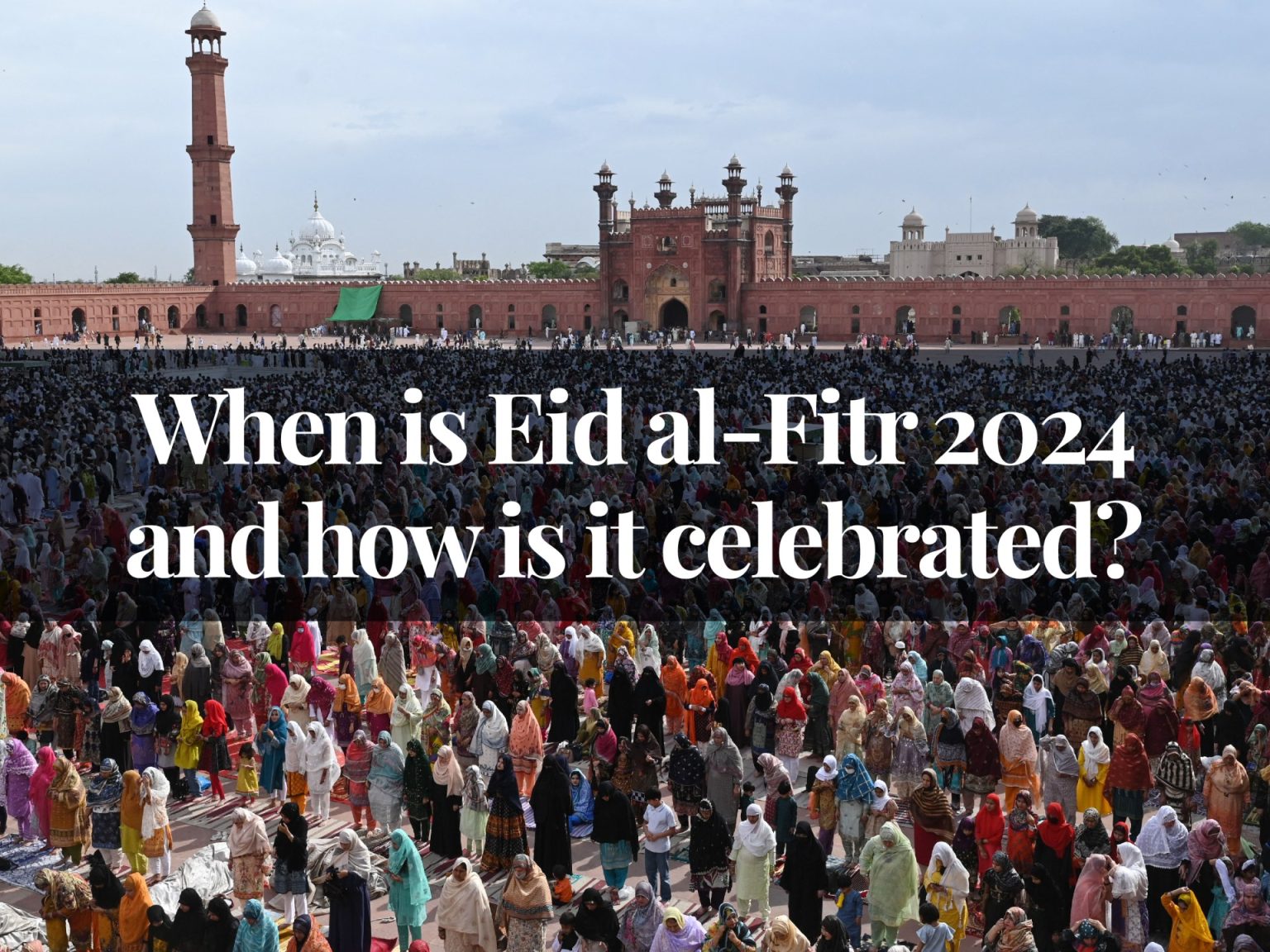Eid al-Fitr, also known as the “festival of breaking the fast”, marks the end of the fasting month of Ramadan for Muslims around the world. The date of Eid al-Fitr is determined by the sighting of the crescent moon marking the start of the month of Shawwal. Muslims usually have to wait until the night before Eid to verify its date as lunar months last between 29 and 30 days. The announcement of Eid is made on television, radio stations, and at mosques after the moon has been sighted. This year, astronomical calculations suggest that Eid al-Fitr will likely begin on Wednesday, April 10 in Saudi Arabia and many neighbouring countries.
Muslims celebrate Eid al-Fitr by participating in a prayer service shortly after dawn, followed by a short sermon. They recite takbeerat, praising God by saying “Allahu Akbar” on their way to the prayer, which is traditionally held in an open area. It is customary to eat something sweet before the prayer, such as date-filled biscuits known as maamoul in the Middle East. Muslims spend the day visiting relatives and neighbours, accepting sweets, and offering gifts and money to children dressed in new clothes. In many countries, girls and women decorate their hands with henna the night before Eid, and families may visit graveyards to offer respects to departed family members after morning prayers.
In Muslim-majority countries, Eid is celebrated as an official holiday for three days, though the number of holiday days may vary by country. Traditional desserts and sweets are prepared before or on the morning of the first day of Eid. The distribution of sweets is common during this festive time. Children are often offered gifts and money, and girls and women may decorate their hands with henna as part of the celebration. In some countries, cities are decorated with lights and festivities are held to mark the end of the fasting month.
However, for Palestinians in Gaza, this Eid will be celebrated amidst destruction after over 33,000 people have been killed in Israeli attacks. With little food aid and limited water, the festivities in Gaza will be overshadowed by the ongoing attacks. Despite this, Muslims around the world continue to greet each other with common Eid greetings such as “Eid Mubarak” (Blessed Eid) or “Eid sa’id” (Happy Eid). Eid greetings may vary depending on the country and language, but the sentiment of well-wishes and congratulations remains the same.


